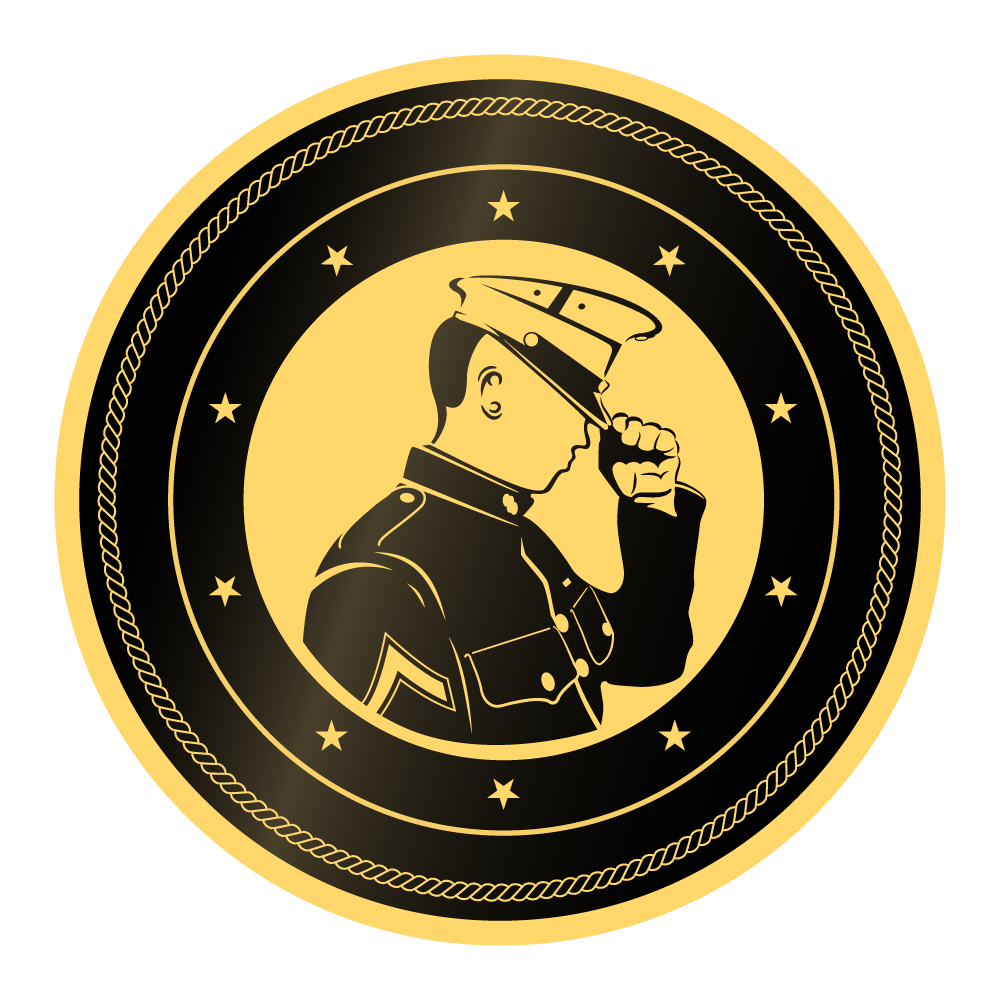Meet our Warriors: Povas Miknaitis
Scout Sniper, Marine Corps 2006-2012
By Erin Cartaya
The Movie Image
When people think “Sniper,” they think of the Hollywood stereotype. They envision the sharp shooting, the heroics behind the gun, and the honor of being among the top snipers in the world. They don’t see the danger the men put themselves into, the risks, and the aftermath. They witness far more horror than even the movies could portray.
Povas Miknaitis joined the Marine Corps in San Diego and went to Camp Pendleton for infantry training. He later ended up at a training facility in 29 Palms when an opportunity to try for the Scout Sniper Platoon came up, and he made it in. He was deployed to Iraq in 2008 and then to Afghanistan in 2009. During this tour, his team was assigned to a city in Afghanistan that had not been seen since the beginning of the war in 2001. The area they were traveling to had already had so many casualties that many Marines intentionally tried to get kicked out before being sent there (to paint a picture of the extent of danger that lay ahead).
Know Before you Go
Although that area had been essentially abandoned since 2001, the Taliban moved in and had full range throughout the city. They took advantage of that and planted booby traps to hinder any movements, to the point that the Marine Unit prior to Povas’ entry could hardly venture out past their base. Enter Povas.
They were there for about two months when Povus’ team got tasked to observe and discover what was happening in the city’s center. Traveling from compound to compound, the group ventured into one with a hole in the wall. While trying to avoid doors because of the risk of a booby trap, Povus’ teammate kicked in a door, which immediately exploded…
Povas got thrown from the explosion, and other team members also sustained severe injuries. Medical help wouldn’t arrive for two hours because of the danger of traveling through the city. He went from teammate to teammate to see how everyone was doing. “I’m not sure how reassuring that was since a third of my mouth was missing, and I couldn’t talk.”
No Time
It’s hard to fathom how much your life can change in just one moment. For Povas, there was no time to think about that. No time to see the damage done to his face and ear. No time to be scared for his brother’s lost legs. He immediately started to reassure everyone that help was on the way. “You’re going to be fine,” he kept telling them. But Povas knew that even if you’re totally fine, your body can tell you to die if it wants. Using his knowledge about treating trauma, Povas knew to stop the bleeding, start the breathing, and treat for shock–the order of what might kill you the fastest.
Recounting the one moment between normal and forever changed can last a lifetime. Some memories fade. Others are just as vivid as the day it happened. Recounting these moments will never make the time go away–or the pain. It comes with many pauses, a few deep, labored breaths, and tears. As if no time has passed, some memories remain clear as day, every day. Time is a precious thing, but it can also be an enemy. Moments we cherish seem fleeting. The horrific ones last a lifetime. But what happens in between those moments? Life goes on.
What Becomes of Us?
Povas ended up back at the Balboa Naval Medical Center in 2009. The first time Povas met Sandy, Founder and CEO of Warrior Foundation, was later that year. While being treated at the hospital after Afghanistan, it wasn’t a requirement to show up for Formation. But one particular day, it was. A group of women were standing there with postcards. They gave everyone cards that read, “You are going to wake up in your bed, in your own home, in your town.” The Warrior Foundation had flown the Warriors home for Christmas in 2009. That was when Povas met Sandy.
After a year in the hospital, the Marine Corps discussed retaining him. Not sure if he could keep his current job as a Scout Sniper, he began the separation process, which led him to Freedom Station I. He immediately felt at home, knowing he was with others going through the same transition or some version of the same story. He was happy and grateful for the opportunity to be with others, being supported while being lifted up.
Having the Warrior Foundation has given Povas more than he could’ve dreamed of. From a roof over his head to a job to help finding a house of his own, the support he’s gotten while transitioning into civilian life has been something that Povas thinks of daily. He often thinks about where he might be if he didn’t come to Freedom Station as he left the Marine Corps. Would he be on that street corner begging? Would he have a home? Knowing some of the dark places he’s been in, what he’s gotten out of the Warrior Foundation inspires him to give back. “They’ve helped me with the different battles I’ve faced in my life.”
For Povas, everything the Warrior Foundation had provided for him “was enough.” But it also wasn’t enough. He wanted to give back. Having learned handiwork from his dad, Povas was able to help around the facility while transitioning into civilian life. He got into school at the University of San Diego and became the property manager for Freedom Station while earning his degree.
Working, living life, and owning a home, Povas has transitioned into civilian life but continues to give back to Warrior Foundation. He helps with the setup for new warriors coming through, helping with their transitions. He wants to give back as much as the Warrior Foundation has given him. Wherever he is needed, he’ll be there. Povas continues to give back, hoping others will follow in his footstep someday.
Of everything Povas has gotten out of his time in service and transition into civilian life, he mainly recognizes that many people live selfishly. It’s good to give back.






